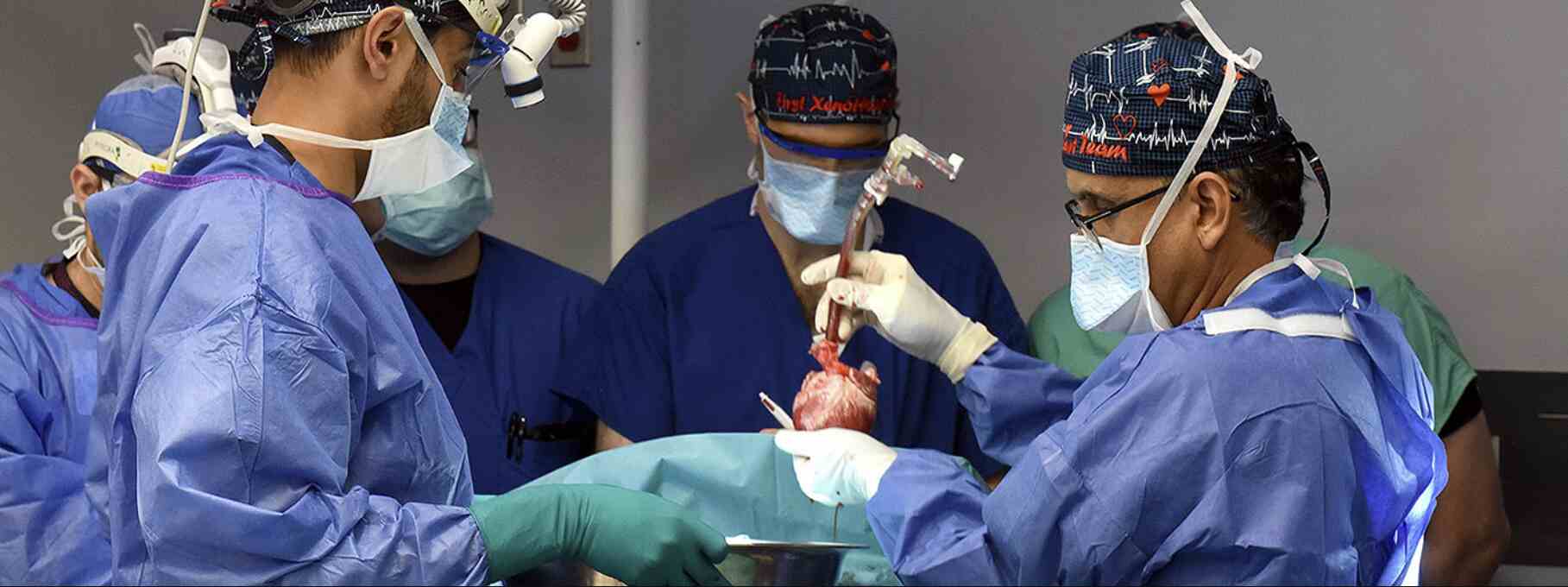Groundbreaking Transplant: Dying Man Receives Pig's Heart, Shows Incredible Recovery
University of Maryland surgeons have successfully transplanted a pig's heart into a dying man, marking a groundbreaking medical achievement in xenotransplantation and offering hope to patients ineligible for traditional heart transplants.
In a groundbreaking medical achievement, surgeons at the University of Maryland Medicine have successfully transplanted a pig's heart into a dying man, marking only the second time such an experimental feat has been attempted. The 58-year-old Navy veteran, Lawrence Faucette, was facing near-certain death from heart failure but was not eligible for a traditional heart transplant due to other health problems. However, two days after the operation, Faucette was already cracking jokes and able to sit in a chair, showcasing an incredibly positive early response to the pig organ.
Dr. Bartley Griffith, the surgeon who performed the transplant, expressed amazement and gratitude at the opportunity to work with such innovative technology. He emphasized the privilege but also the pressure associated with this groundbreaking procedure. The same Maryland team had previously performed the first-ever transplant of a genetically modified pig heart into another dying man, David Bennett, who unfortunately survived for only two months.
The scarcity of available human organs for transplant continues to be a major issue. Last year, there were over 4,100 heart transplants in the US, a record number, but the supply remains severely limited. To address this shortage, scientists have turned to animal-to-human organ transplants, using genetically modified pigs to create organs that are more compatible with the human immune system. The success of this recent transplant opens up new possibilities for future research and clinical trials. Scientists in other hospitals have been testing pig kidneys and hearts in donated human bodies, hoping to gather valuable information to launch formal studies on xenotransplants.
In the case of Lawrence Faucette, special permission from the Food and Drug Administration was required for him to receive the pig heart outside of a rigorous trial. Over 300 pages of documents were filed with the FDA, demonstrating the knowledge gained from the first transplant attempt and the need to try again. Faucette, a retired lab technician from the National Institutes of Health, fully understood the risks involved in the procedure. He expressed gratitude for the potential opportunity to spend more time with his loved ones, even if it meant simply sitting on the front porch and having coffee together.
This time, scientists discovered signs of a pig virus in the heart after the previous transplant, prompting the development of better tests to detect hidden viruses. Medication changes were also made to ensure the success of the current procedure. Faucette, unlike the first patient, was not as near to death, which played a significant role in his positive outcome. By the fourth day after the surgery, his new heart was functioning well without any supportive machinery. Dr. Muhammad Mohiuddin, the expert in xenotransplantation on the Maryland team, expressed his amazement at witnessing a pig heart functioning in a human body.
However, he remains cautious and does not want to make any predictions. The success of this compassionate use case provides some insights into how the pig organ works, but more formal testing is necessary to gather comprehensive data. The fact that the FDA allowed this second case suggests that the agency is not yet ready to authorize a pig heart clinical trial.
Further research and development are required to ensure the safety and efficacy of this groundbreaking medical procedure. The pig heart used in the transplant was provided by Revivicor, a company based in Blacksburg, Virginia. It had undergone ten genetic modifications, including the removal of certain pig genes and the addition of human genes to make it more compatible with the human immune system. This medical breakthrough offers hope for individuals who are ineligible for traditional heart transplants due to a shortage of available human organs. While there are still many challenges to overcome before this procedure becomes widely accessible, the successful transplantation of a pig's heart into a human represents a significant step forward in the field of xenotransplantation.




